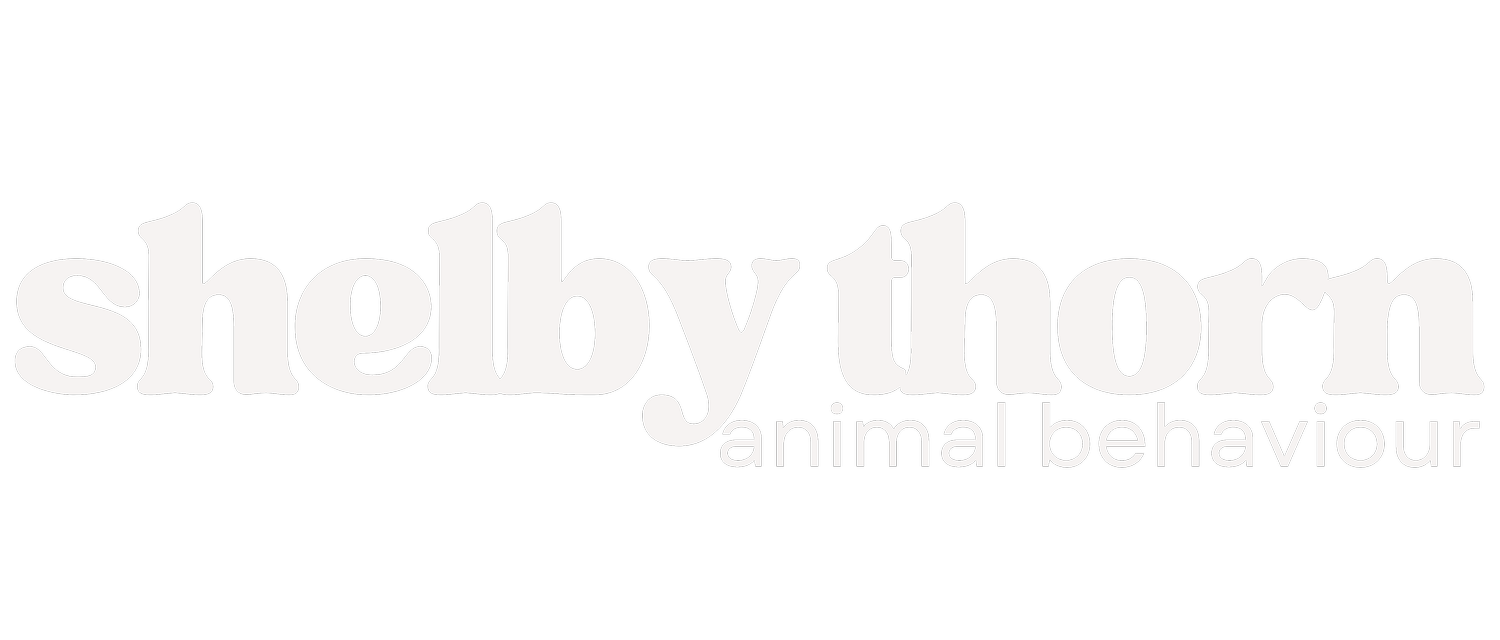Dominance & dogs.
Through the domestication process, dogs and wolves have become to separate species with their own behavioural habits. They domesticated over 25,000 years from from grey wolves in Eurasia.
Dog - Canis familiaris
Wolf - Canis lupus
From the 1940's - 1980's, studies of wolves held in captivity suggested that they used aggression, among other behaviours, to establish a hierarchy. As dog's descended from wolves it was then quickly assumed that they use the same social function. These studies were heavily flawed and we have since learned much more about the behaviour of domestic dogs, and also know that wolves in the wild rarely use aggression within their families and social groups. Our domestic dog evolved from the wolf more than 15,000 years ago and dogs have developed major differences both physiologically and behaviourally. Research shows that how dogs present socially or in a group comes down to who they are and their personality, not 'where their place is within a hierarchy'.
20 - 30 years ago, traditional dog training techniques involved the use of dominance theory, and as a result we know first hand what the use of punishment based techniques can lead to. Dogs who have frequent negative training experiences are far more likely to develop anxieties affecting their welfare and mental state, sometimes even their quality of life. If your dog is barking, growling or baring its teeth it is not trying to 'show you who's boss'. Dog's use aggression as communication and as a way to manage their stress or uncertainty. You do not need to 'make your dog submit', but rather find the reason as to why they feel the need to use aggression and implement an appropriate training or management plan. The use of punishment will increase your dogs level of stress and they are more likely to use aggression or develop learned helplessness. Learned helplessness is when a dog feels that it's behaviour does not lead to a positive outcome, and so it simply stops trying.
It is now widely recognised by animal behavioural specialists that dogs that use aggression towards humans or other dogs are not trying to be ‘dominant’. Rather, aggression is usually the result of social confusion, frustration, fear, anxiety or learning. Dogs may use aggression as a means to control situations in which they feel frustrated, fearful or anxious. Some dogs are unable to navigate certain social and interactive demands placed upon them without showing aggression or reactivity. With repeated exposure to such situations dogs can learn that aggression ‘works’ and are more likely to use aggression to control similar situations in the future. If your dog is showing aggression, we suggest that you seek help from a veterinary behavioural specialist.

